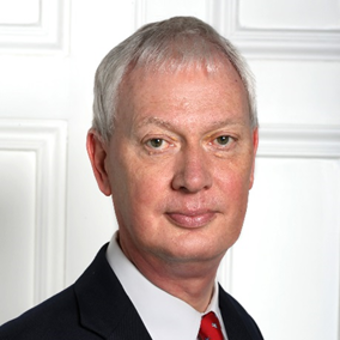We talk to Jayne Burrell – Sinclair Pharmaceutical’s GGC and Company Secretary
Jayne, can you please quickly summarise your education and career path to date?
Having attained my GCSEs and A Levels at Helsby High School, I attended Lancaster University to study for my law degree before going to College of Law in Christleton, Chester, to do the LPC which was sponsored by Eversheds. I joined Eversheds as a trainee solicitor in March 1998 and qualified into the IP department at the end of my training contract. Upon qualification, I undertook a Diploma in intellectual property law at Bristol University which involved a year of study in the evenings and at weekends. I then decided to move in-house and spent a couple of years at BNFL before moving to Iceland Foods where I joined as a commercial lawyer. I worked my way up through the ranks to become head of legal in 2005 and company secretary and GGC in April 2011, after 12 years at Iceland, I decided it was time to move on so joined Sinclair almost four years ago.
What does Sinclair Pharma do?
Sinclair is a global aesthetics company focusing on effective, high quality, natural looking and minimally invasive treatments.
What kind of work do you undertake?
I undertake a wide range of work. In addition to managing a small team, I sit on our board as company secretary and I also look after insurance, compliance, health & safety and HR.
What’s the most enjoyable thing about your current role?
The variety as I never know what is going to hit my disk on any given day. In particular, I enjoy the fact that Sinclair is a global business; we have offices across Europe as well as in Brazil, Singapore, Mexico and the US, so not only is it interesting dealing with different jurisdictions from a legal perspective, I also really enjoy working with the different cultures across these countries.
What made you move from private practice to in-house?
After completing my IP diploma, I felt ‘all Ip’d out’! I could not imagine simply reviewing IP clauses in contracts for the rest of my career. I wanted to be able to advise on a range of commercial matters, rather than being pigeon-holed into a very niche area.
What was the biggest surprise or difference?
The hours. I think there is a misperception that in-house lawyers work less hours than private practice. In my experience this is absolutely not the case!
Is there anything you miss?
The resources. Being part of a big law firm means there is lots of admin support and access to a wealth of information and precedents which is not so readily available in-house.
What advice would you give to anyone thinking of making a similar switch?
Do it!!! If you are leaving early in your career my advice would be to make sure that you go somewhere with an established team where you can continue to learn from others with more experience, I have seen too many people jump too early into a sole in-house role which, in my view, can be very career limiting.
You are passionate about supporting and developing the next generation of in-house lawyers via internal training contracts; can you tell us a bit about that?
Yes. When I worked at Iceland, for the first time in the company’s history, we offered a training contract to an existing member of staff who was a PA but had done the GDL in her own time. We sponsored her through her LPC and she then undertook a training contract, which included doing a four month seat at DWF LLP in its employment team. She is now a few years’ qualified and is still working in the legal team at Iceland. When I joined Sinclair, I recruited a paralegal who was in the process of finishing her LPC. We gave her a training contract, which included working a few days a week for a number of months at our trade mark agents. I am delighted to say that she qualified as a solicitor last month and is a very valued member of my team.
What are the main benefits for the firm and the person?
I think the main benefits for the company of training someone in-house is that they are so much more commercial. You can teach someone the law but it is much harder to teach them commerciality. I have interviewed a number of lawyers over the years who have been academically brilliant but would not survive in-house as they lack the key commercial skills which are fundamental.
Finally, who has been your biggest career inspiration and why?
Janet Knowles, the partner who I first sat with at Eversheds as a trainee solicitor and whose department I qualified into. She was a tough cookie but a brilliant lawyer. She taught me a lot of skills which as a young naïve lawyer were invaluable to help me grow and develop and give me the drive to succeed.












